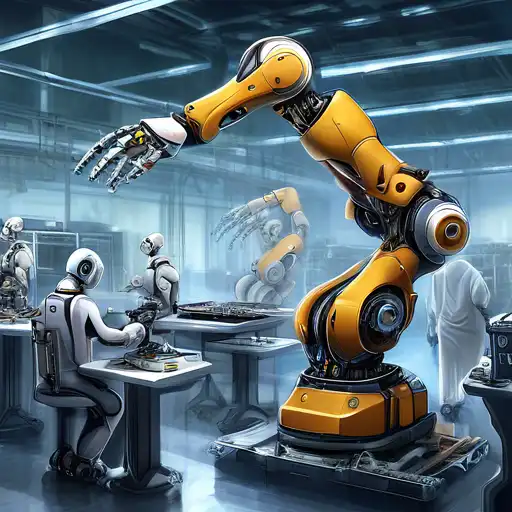The Revolutionary Impact of Robotics on Modern Manufacturing
In the ever-evolving landscape of manufacturing, robotics has emerged as a game-changer, revolutionizing how products are designed, produced, and delivered. This transformation is not just about automating repetitive tasks but also about enhancing precision, efficiency, and safety in manufacturing processes. Let's delve into how robotics is reshaping the manufacturing sector.
Enhanced Efficiency and Productivity
Robotics technology has significantly boosted manufacturing efficiency and productivity. Robots can operate 24/7 without fatigue, performing tasks at a consistent speed and precision that far surpass human capabilities. This relentless efficiency reduces production times and increases output, enabling manufacturers to meet growing consumer demands more effectively.
Improved Quality and Precision
The precision of robotic systems ensures that every product meets stringent quality standards. With advanced sensors and programming, robots can perform intricate tasks with minimal errors, reducing waste and rework. This level of precision is particularly crucial in industries like aerospace and automotive, where even the slightest deviation can have significant consequences.
Cost Reduction
While the initial investment in robotics can be substantial, the long-term savings are undeniable. Robots reduce labor costs, minimize errors and waste, and lower the risk of workplace injuries. Over time, these savings can offset the upfront costs, making robotics a cost-effective solution for manufacturers.
Safety Enhancements
Robotics has made manufacturing environments safer by taking over dangerous tasks that pose risks to human workers. From handling hazardous materials to operating in extreme conditions, robots can perform these tasks without putting human lives at risk, significantly reducing workplace accidents.
Future Trends in Robotics and Manufacturing
The future of manufacturing lies in the further integration of robotics with emerging technologies like artificial intelligence (AI) and the Internet of Things (IoT). These advancements will enable smarter, more adaptable robotic systems that can learn from their environment and make real-time decisions, further transforming manufacturing processes.
In conclusion, robotics is not just transforming manufacturing; it's redefining it. By embracing this technology, manufacturers can achieve unprecedented levels of efficiency, quality, and safety, securing a competitive edge in the global market. The journey of robotics in manufacturing is just beginning, and its potential is limitless.
